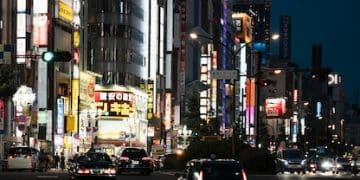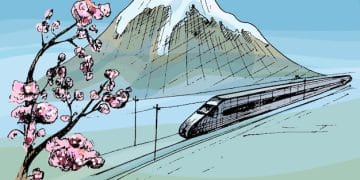Japan’s Language Guide: Essential Phrases for US Travelers
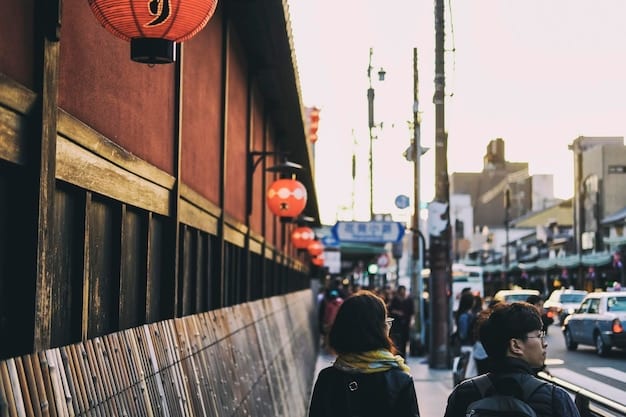
Japan’s Language Learning Guide for US Travelers provides essential phrases, cultural insights, and practical tips to navigate Japan confidently, enhancing your travel experience through effective communication and respect for local customs.
Japan’s Language Learning Guide: Essential Phrases for US Travelers
Planning a trip to Japan? While the country is known for its incredible hospitality and efficient infrastructure, navigating daily interactions becomes much smoother with a basic understanding of the Japanese language. This Japan’s Language Learning Guide: Essential Phrases for US Travelers is designed to equip you with essential phrases, helping you communicate effectively and respectfully during your visit.
Why Learn Basic Japanese Phrases?
Learning even a few basic Japanese phrases can significantly enhance your travel experience. It shows respect for the local culture, allows you to navigate more independently, and can lead to more meaningful interactions with locals. Plus, it can be quite fun!
Respect and Connection
Using Japanese phrases demonstrates respect for Japanese culture and its people. It also opens doors for deeper connections, as locals often appreciate the effort made by foreigners to communicate in their language.
Ease of Navigation
Knowing key phrases can help you navigate situations like asking for directions, ordering food, or shopping with greater ease. This can be especially helpful in areas less frequented by English speakers.
- Greetings: Starting with “Konnichiwa” (Hello) can set a positive tone.
- Asking for help: “Sumimasen” (Excuse me) followed by your question can be very useful.
- Gratitude: Saying “Arigato” (Thank you) is always appreciated.
Overall, making an effort to learn some Japanese phrases can transform your trip from a simple vacation to an immersive cultural experience, fostering better interactions and a deeper understanding of Japan.
Essential Greetings and Basic Phrases
Mastering basic greetings and phrases is crucial for making a positive first impression and facilitating everyday interactions. Whether you’re ordering food, asking for directions, or simply engaging in conversation, these phrases will prove invaluable during your travels.
Greetings
Knowing how to greet people properly is a fundamental aspect of communication in any culture. In Japan, greetings vary depending on the time of day and context. Here are some essential greetings to get you started:
- Konnichiwa (こんにちは): Good afternoon/Hello (used from daytime to evening)
- Ohayo Gozaimasu (おはようございます): Good morning (formal) or Ohayo
- Konbanwa (こんばんは): Good evening/Hello (used from evening to night)
Basic Phrases for Everyday Interactions
Beyond greetings, several basic phrases can come in handy for various situations. These phrases can help you navigate everyday scenarios and make your interactions smoother:
- Sumimasen (すみません): Excuse me/I’m sorry
- Arigato (ありがとう): Thank you (casual) or Arigato Gozaimasu (formal)
- Doitashimashite (どういたしまして): You’re welcome
- Onegaishimasu (お願いします): Please (when asking for something)
These phrases can significantly smooth your interactions, showing respect and facilitating clear communication. By integrating these greetings and phrases into your daily interactions, you’ll find it easier to navigate and enjoy your time in Japan.
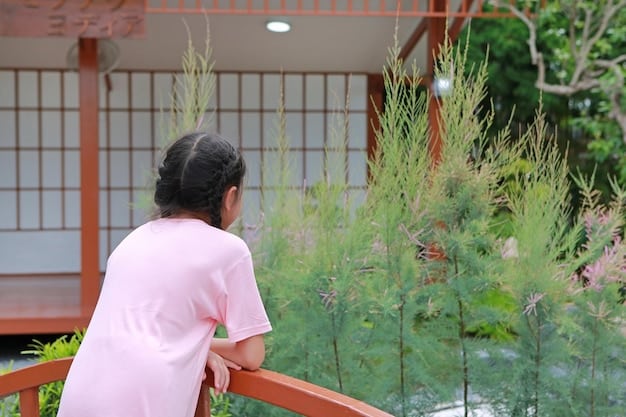
Navigating Transportation with Japanese
Japan’s public transportation system is renowned for its efficiency and punctuality. However, navigating it can be challenging if you don’t speak the language. Learning key phrases for transportation can make your travel smoother and more enjoyable.
電車 (Densha) – Train
When taking a train, you might want to ask:
“Koko wa doko desu ka?” (ここはどこですか?): Where is this?
“Eki wa doko desu ka?” (駅はどこですか?): Where is the station?
“____ made ikura desu ka?” (____までいくらですか?): How much is it to ____?
バス (Basu) – Bus
For buses, these phrases can be helpful:
“Kono basu wa ____ ni ikimasu ka?” (このバスは____に行きますか?): Does this bus go to ____?
“Tsugi no teiryujo de oroshite kudasai.” (次の停留所で降ろしてください。): Please let me off at the next stop.
Taxi (タクシー – Takushi)
When using a taxi, you can say:
“____ made onegaishimasu.” (____までお願いします。): Please go to ____.
“Massugu itte kudasai.” (まっすぐ行ってください。): Please go straight.
Knowing these phrases can help you confidently navigate the transportation system, whether you are using trains, buses, or taxis. This ensures a smoother and more enjoyable travel experience, allowing you to explore Japan with greater ease.
Dining Essentials: Ordering Food and Drinks
Enjoying Japanese cuisine is a highlight for many visitors. Knowing how to order food and drinks in Japanese will enhance your dining experience and ensure you get exactly what you want.
Entering a Restaurant
When you enter a restaurant, here are some phrases you might hear or use:
- Irasshaimase! (いらっしゃいませ!): Welcome! (said by the staff)
- Nan mei sama desu ka? (何名様ですか?): How many people? (said by the staff)
- Hitori desu. (一人です。): I am alone.
- Futari desu. (二人です。): We are two people.
Ordering Food and Drinks
Once seated, these phrases will help you order:
- Kore wa nan desu ka? (これは何ですか?): What is this?
- ____ o kudasai. (____をください。): Please give me ____.
- Osusume wa nan desu ka? (おすすめは何ですか?): What do you recommend?
- Biiru o kudasai. (ビールをください。): Please give me a beer.
Special Requests and Allergies
If you have dietary restrictions or allergies, these phrases are crucial:
- ____ Allergy ga arimasu. (____アレルギーがあります。): I have a ____ allergy.
- Vegetarian desu. (ベジタリアンです。): I am a vegetarian.
- Vegan desu. (ビーガンです。): I am a vegan.
By learning these essential dining phrases, you can fully enjoy the culinary delights Japan has to offer. Communicating in Japanese not only makes ordering easier but also shows appreciation for the local culture, making your dining experience more rewarding.
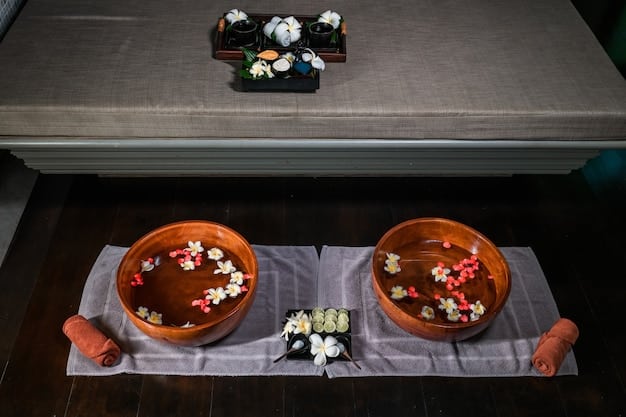
Shopping Smart: Phrases for Stores and Markets
Shopping in Japan can be a unique cultural experience, whether you’re browsing department stores or exploring local markets. Knowing key phrases for shopping will help you navigate transactions and interactions more confidently. Here’s how to shop smart using the Japanese language.
Basic Phrases for Shopping
When you enter a store, you may want to ask:
“Kore wa ikura desu ka?” (これはいくらですか?): How much is this?
“Takai desu ne!” (高いですね!): That’s expensive!
“Motto yasui no wa arimasu ka?” (もっと安いのはありますか?): Do you have anything cheaper?
Asking for Assistance
If you need help finding something, use these phrases:
“____ wa doko desu ka?” (____はどこですか?): Where is ____?
“Tetsudatte itadakemasu ka?” (手伝っていただけますか?): Can you help me?
Making a Purchase
When you’re ready to buy, these phrases are helpful:
“Kore o kudasai.” (これをください。): I’ll take this.
“Kureka de haraemasu ka?” (クレジットで払えますか?): Can I pay with credit card?
With these phrases, you’ll find shopping to be easier and more enjoyable, whether you’re picking up souvenirs or buying everyday items. Using Japanese phrases enhances your experience and shows respect for local customs, making your shopping trips more rewarding.
Emergency Phrases and Safety Tips
While Japan is generally a safe country, it’s wise to be prepared for emergencies. Knowing a few key phrases can be incredibly helpful in such situations. Here are the essential phrases and safety tips:
Emergency Phrases to Know
Firstly, shouting for help is universal like:
“Tasukete!” (助けて!): Help!
- Keisatsu (警察): Police
- Kyuukyuusha (救急車): Ambulance
- Isha (医者): Doctor
Explaining the Situation
These phrases can help you explain your situation:
- Byouki desu (病気です): I am sick
- Kega o shimashita (怪我をしました): I am injured
Safety Tips for Travelers
Understanding these phrases and following safety tips can provide peace of mind, enabling you to enjoy your travels with confidence.
- Japanese emergency number is 110 for the police and 119 for ambulance or fire services.
- Ensure you have travel insurance that covers medical emergencies.
- Make copies of your passport and keep them separate from the original.
Remember the numbers and stay safe as traveling in Japan is an amazing experience!
| Key Phrase | Brief Description |
|---|---|
| 👋 Konnichiwa | Hello/Good afternoon; a versatile greeting. |
| ❓ Sumimasen | Excuse me/I’m sorry; useful for getting attention. |
| 🙏 Arigato | Thank you; express gratitude in any situation. |
| ❓ ____ wa doko desu ka? | Where is ____?; essential for navigation. |
What are some common Japanese greetings I can use?
▼
Common greetings include “Konnichiwa” (Hello/Good afternoon), “Ohayo Gozaimasu” (Good morning), and “Konbanwa” (Good evening). Use “Konnichiwa” during the daytime, “Ohayo Gozaimasu” in the morning, and “Konbanwa” in the evening to sound polite.
▼
“Thank you” in Japanese can be said as “Arigato” (casual) or “Arigato Gozaimasu” (formal). Use “Arigato” with friends and family, and “Arigato Gozaimasu” in more formal situations or when addressing strangers.
▼
If you need help, start with “Sumimasen” (Excuse me) to get someone’s attention, then ask your question. For example, “Sumimasen, ____ wa doko desu ka?” (Excuse me, where is ____?). This shows politeness.
▼
To order food, say “____ o kudasai” (____, please). For example, “Ramen o kudasai” (Ramen, please). If you want to know what something is, ask “Kore wa nan desu ka?” (What is this?).
▼
Essential transportation phrases include asking “____ made ikura desu ka?” (How much to ____?) for trains and buses. In a taxi, you can say “____ made onegaishimasu” (Please go to ____) to direct the driver.
Conclusion
Learning a few basic Japanese phrases can significantly enhance your travel experience in Japan. Not only does it show respect for the local culture, but it also allows you to navigate various situations with greater ease and confidence. Start with greetings, basic phrases, and transportation and dining essentials, and you’ll be well-prepared to make the most of your trip. Remember being considerate of the local culture is part of the experience of visiting Japan.

